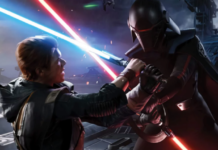When initially announced, the Nintendo DS was a surprising release that did away with the insanely popular Game Boy branding. It was a risky move, one that ultimately proved successful for the company, but it wasn't always the plan. In fact, the successor to the Game Boy Advance was originally more in line with the series with only one screen according to former Nintendo R&D General Manager Satoro Okada.
"Actually, after the SP, we were working on the newest model in this range. The code name for this new Game Boy was IRIS, like the flower. The explanation for this name is simple: since it was for us the fifth generation of Game Boy, we chose the symbol of May (the fifth month of the year). In the Hanafuda playing cards, the month of May is symbolized by the iris. The project was moving forward at a good pace but during the development, something at unexpected happened."
However, development plans changed after the late Satoru Iwata, who at the time had only recently taken over as President of Nintendo, spoke with his predecessor Hiroshi Yamauchi over the phone. Okada went on to say:
"President Iwata then came to see me. He was obviously bothered and he said: ‘l talked to Yamauchi-san over the phone and he thinks your console should have two screens… A bit like the multi-screen Game & Watch, you see?’ Everybody is aware of this, but what people do not know is that at the time, everybody hated this idea, even Iwata himself. We thought it did not make any sense."

No one on the handheld development team liked this idea, seeing no need for a second screen. Whilst the Game & Watch utilized dual screens due to technological limitations, such restrictions didn't exist anymore.
“Back in the Game & Watch days, it was different because a second screen allowed us to double the playing area and the number of graphic elements on display. But with the modern screens, there was no point. We were free to choose the size of our screen, so why bother splitting it into two? Especially considering that it was impossible to look at both screens at the same time. This is why we did not understand his idea.”
Okada and his team pushed back, but Iwata insisted that they go ahead and see if they could make the idea work. This was hugely problematic, as it sent development back to square one.
“Unlike many people in the company, I was not afraid of Yamauchi-san. I had already fought with him over different issues and I also sometimes publicly opposed his ideas. But Iwata turned me down and said ‘No, we will still give it a try. See what you can do with [it].’ We were both bothered by this, especially since it meant that we had to start all over with our project! So I tried to put my team at ease and I told them ‘I have some experience working with double screens, we will give it our best shot and we’ll see, don’t worry.’ It became project Nitro, released in 2004 under the name Nintendo DS…”
The Nintendo DS proved to be insanely popular, with over 150 million units selling. Seems like Iwata made the right move.







